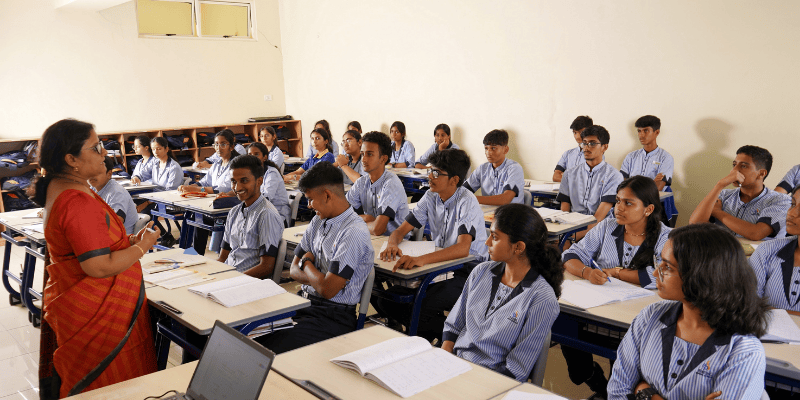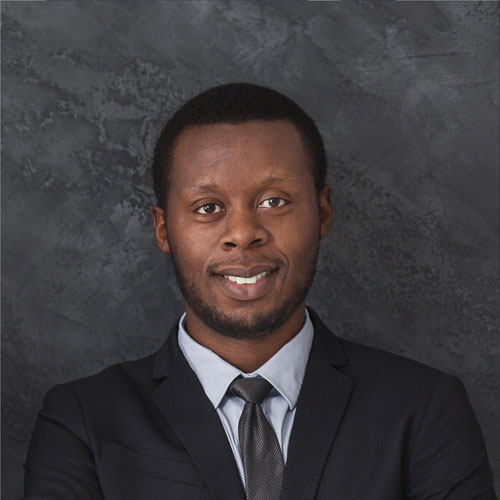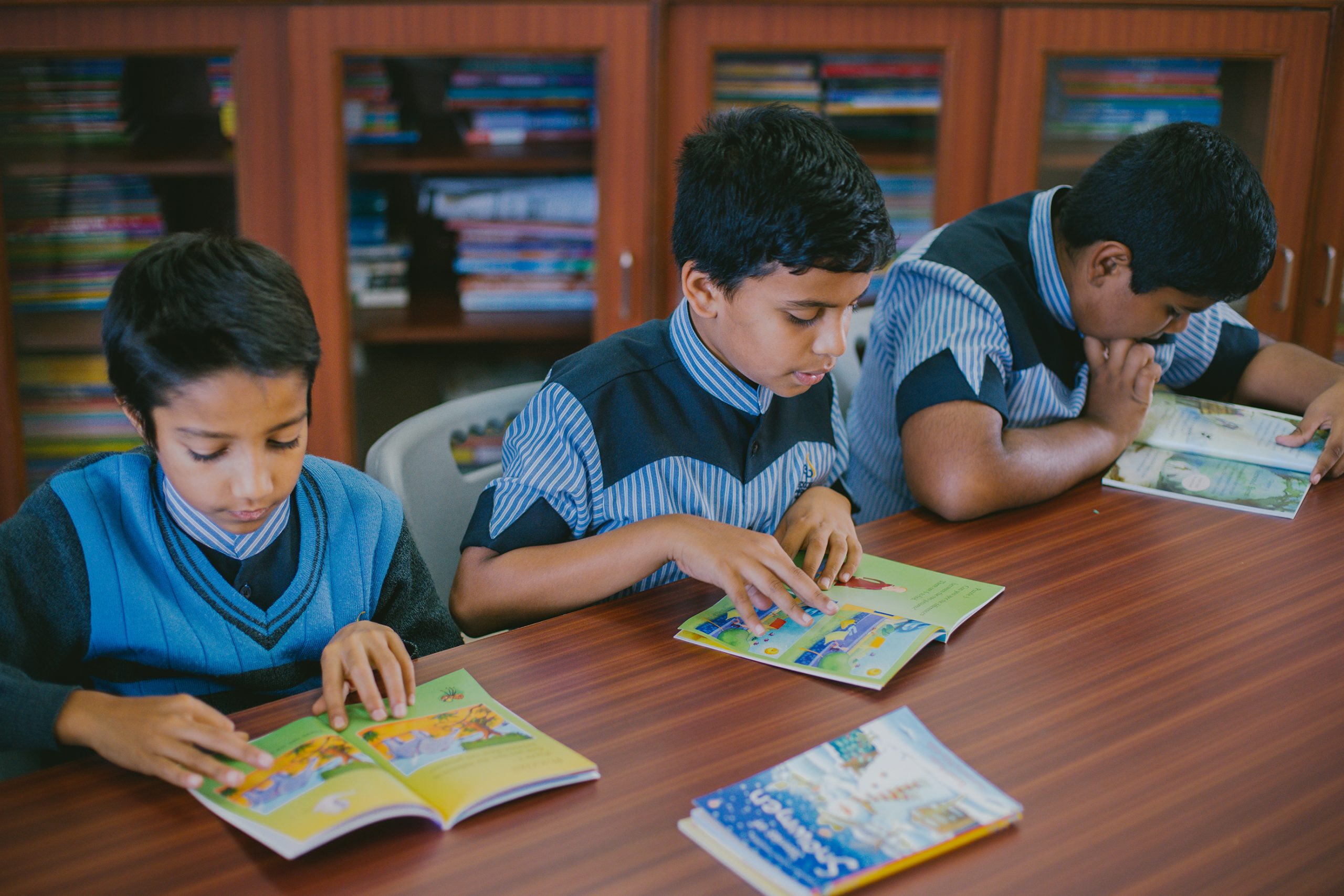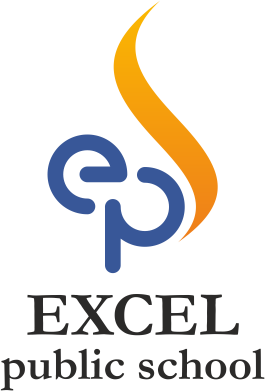Secondary Stage
A Transformative Secondary Education Programme
- Secondary Stage


Introduction
For students in Grades 9 through 12, Excel Public School is dedicated to a programme designed and structured to emphasize a multidisciplinary approach to developing critical thinking, problem-solving, creativity, and leadership skills in the principles outlined in the National Education Policy (NEP) 2020. Our approach strongly accentuates holistic character development, in line with the NEP’s emphasis on value-based education. We aim to cultivate a sense of social responsibility, ethical leadership, and respect for diversity. Through community engagement, students are encouraged to actively participate in initiatives that promote environmental sustainability, social equity, and inclusivity. Our programme is a gateway to a world of opportunities. Aligned with NEP 2020, our mission is to cultivate compassionate, responsible, and visionary leaders who are academically prepared to shape the future. By fostering curiosity, resilience, and a growth mindset, we ensure that our students are equipped with the skills and knowledge needed to excel in their future endeavours.
Academics
In Secondary Stage years (Grades 9 and 10), the academic program builds upon the foundation established in the Middle School. Students delve deeper into subjects, exploring complex concepts and applying their knowledge to real-world problems.
Subjects offered at the Secondary Stage [Grades 9 & 10] with Subject Code
English Lang & Lit.-184, Second Language (Kannada-015 / Hindi-085), Mathematics (Standard-041 / Basic-241), Science-086, Social Science-087, and Artificial Intelligence-417.
The Senior Secondary years (Grades 11 and 12) offer students the opportunity to specialize in their chosen subjects. Through advanced coursework and research projects, students deepen their understanding and develop the skills necessary for success in their future endeavours.
Subjects offered at the Senior Secondary stage [Grades 11 & 12] with Subject Code
English Core-301, Mathematics-041, Physics-042, Chemistry-043, Biology-044, Computer Science-083, Psychology-037, Economics-030, Business Studies-054, Accountancy-055, Applied Mathematics-241, Design-830, Artificial Intelligence-843
* A student could choose any FOUR subjects, in addition to English
Curriculum
We take pride in delivering an academic programme for Grade 9–12 that goes beyond traditional learning. Nurturing an environment of inquiry, innovation, and critical thinking, our programme is designed to provide students with a holistic education that not only strengthens their academic foundations but also prepares them for real-world challenges, as envisioned by the National Education Policy (NEP) 2020.
Subject Flexibility and Choice
The secondary school academic curriculum offers a broad spectrum of subjects across various streams —science, commerce and arts and humanities— allowing students to personalize their learning experience. Whether a student’s interest lies in Mathematics, Sciences, Business Studies, or the Creative Arts, our programme ensures that they receive a balanced education, enabling them to make informed decisions about their academic and career paths. Students can tailor their education by selecting a combination of subjects that align with their aspirations and career goals while ensuring a strong foundational understanding across core areas. This will assist students in preparing for both higher education and the dynamic demands of the 21st Century workforce.
Skill-Based and Experiential Learning
Our academic programme goes beyond textbooks, integrating project-based and experiential learning to help students apply theoretical concepts to real-life situations. We believe in the power of hands-on experience, where students engage in activities that promote critical thinking, collaboration, and problem-solving. Whether it is through lab experiments, business simulations, community projects, or field trips, students are provided with opportunities to enhance their knowledge and skills in practical settings.
Industry Exposure
Internships and career-oriented projects are the key features of Senior Secondary programme. Beyond the classroom, our Senior Secondary program provides students with invaluable opportunities to explore the working world. By developing leadership, communication, and entrepreneurial skills, we prepare our students to confidently navigate their future educational and career paths.
Focus on Competency and Conceptual Mastery
Our academic programme places a strong emphasis on conceptual clarity and competency-based learning. Our curriculum emphasizes conceptual understanding and application over rote memorization, preparing students to think critically and solve problems effectively. Regular assessments, including projects, presentations, quizzes, and practical exams, help ensure that students achieve mastery of the material while also developing critical thinking skills.
Support for Higher Education and Career Pathways
We offer counseling and mentoring that support students to navigate their educational and career choices. Whether they aim for competitive exams, higher studies, or professional careers, our academic programme equips them with the knowledge and skills needed to succeed.
Excelerate and Beyond
The Senior Secondary students also benefit from our dynamic ‘Excelerate’ platform, which offers an array of opportunities to hone their skills in various fields such as science, commerce, design, technology, theatre, and leadership. The platform enables students to take on diverse roles, helping them develop their organizational, creative, and leadership abilities. This ensures that every student can explore their unique strengths while contributing to the school’s vibrant community.
- Academic Excellence and Subject Mastery
- Personalization and Flexibility
- Experiential and Skill-Based Learning
- Industry and Career Readiness
- Conceptual Clarity and Competency-Based Learning
- Life Skills
- Emotional Intelligence
- Higher Education and Career Support
- Decision making
- Adaptability
- Collaboration
- Leadership
- Innovation
- Communication
- Entrepreneurship
- Conceptual Clarity
- Logical Reasoning
- Critical Thinking
- Creativity
- Organizational Skills
Assessment and Evaluation
Continuous and Comprehensive Evaluation (CCE)
Our assessment model is grounded in Continuous and Comprehensive Evaluation (CCE), which ensures that students are assessed regularly, throughout the academic year. This approach goes beyond summative assessments such as end-of-term exams and includes formative assessments that happen daily or weekly through classwork, assignments, quizzes, presentations, and project work.
Competency-Based Assessment
In alignment with NEP 2020, we have adopted a competency-based assessment approach. This evaluates students’ ability to apply their knowledge and skills to real-world situations. Our assessments are developed to analyse the critical thinking, problem-solving, creativity, and collaboration—skills essential for success in the 21st Century. Project-based assessments, open-ended questions, and case studies are integral components of our competency-based evaluation, as they assess students’ ability to apply their knowledge and skills in real-world contexts.
Diverse Evaluation Tools and Techniques
Beyond traditional exams, we use diverse assessment methods to evaluate each student’s capabilities. These include:
- Oral Presentations: Assessing communication skills and the ability to articulate ideas clearly.
- Practical Assessments: Evaluating hands-on understanding in subjects like science, mathematics, and computer science through lab work and experiments.
- Peer and Self-Evaluation: By encouraging students to reflect on their work and collaborate with their peers, we foster a sense of ownership and accountability for their learning.
- Portfolios: Compiling a record of student work over the academic year, showcasing growth in various areas including academic achievement, creativity, and critical thinking.
While formative assessments are important in our evaluation process, we also conduct summative assessments at the end of each term. These exams provide a comprehensive measure of student learning, ensuring the students have mastered the curriculum. These assessments are integrated into the broader evaluation system, which includes ongoing class participation, project work, and overall contributions.
Personalized Feedback and Growth Tracking
Every student receives detailed feedback on their performance, including suggestions for improvement and areas where they have excelled. Our teachers work closely with each student, offering one-on-one guidance and support where needed. Growth tracking allows us to monitor individual progress over time and tailor interventions or enrichment activities accordingly.
Fostering Self-Reflection and Lifelong Learning
Students are encouraged to set personal goals, reflect on their learning experiences, and take ownership of their academic journey. This promotes a growth mindset and builds the confidence needed to succeed inside and outside the classroom.
Balanced and Structured Academic Schedule
The academic schedule is designed to ensure a balanced and productive learning environment for students in Grade 9-12. Our schedule provides a mix of academic rigour, extracurricular activities, and personal growth opportunities, fostering a holistic development approach. Each school day is carefully structured to allow adequate time for core subjects such as mathematics, science, languages, and social science, while also incorporating periods for practical subjects like computer science, design, and physical education. This balance ensures that students receive theoretical knowledge and hands-on experience, for comprehensive learning. The schedule includes regular breaks to ensure students remain focused and energized throughout the day.
We follow a semester-based system with two terms in the academic year. Regular assessments, projects, and exams provide students with opportunities to reflect on their progress and make improvements throughout the term. Dedicated time for extracurricular, clubs, and co-curricular activities also build into the weekly schedule, allowing students to explore their interests beyond academics.
Additionally, our academic year includes special events, guest lectures, and community engagement projects, enriching the student experience and ensuring a well-rounded education. The schedule at Excel Public School is carefully crafted to promote academic excellence and the overall well-being of our students.
Excel Public School is affiliated with the Central Board of Secondary Education (CBSE), New Delhi, and follows the educational programme as suggested/recommended by it.
Instructional strategy at EPS focuses on building skills in all the intelligences, based on the theory of ‘Multiple Intelligences’. Importance is given to learning through presented with authentic issues to explore, students are encouraged to inquire, take risks, share their ideas and stretch to new levels of performance. The educational programme at EPS is expected create self-directed, self-motivated and passionate learners, who would be sensible, sensitive and socially responsible at all times, and prove themselves to be an asset to the society, the nation and the world at large.
The hallmark of our school is the blend of teaching-learning process with technology. The educational methods and materials are enhanced with the help of technology tools and multimedia objects. This empowers the teachers and students to achieve effective learning in all its aspects. We try to incorporate some of the best teaching learning practices to maximize the learning experience of our students. Blended learning methodology encourages all-round development of students and provides learning opportunities to students of varying learning abilities, styles and pace. Teachers provide personalized instruction for all students at all levels.
Student performance will be monitored based on the inputs captured on an ongoing basis. Assessment at the school is based upon clearly-defined purposes, goals and criteria. Student progress is measured against developmental benchmarks, based on accepted standards in each subject area.
Focused areas of growth and development at the Foundational, Primary, Middle, Secondary & Senior Secondary School Levels include
• Creativity and Innovation
• Critical Thinking and Problem Solving
• Communication
• Collaboration
• Global Awareness
• Financial, Economic and Entrepreneurial
• Literacy
• Media Literacy
• Health and Civic Literacy
• Environmental Literacy
• Flexibility and Adaptability
• Initiative and Self Direction
• Social and Cross-Cultural Skills
• Productivity and Accountability
• Leadership and Responsibility
Curriculum at the Foundational Stage
The Foundational Stage encompasses a crucial phase in a child’s learning journey. Special attention is paid to making sure that children enjoy every aspect of schooling in their formative years. This stage prioritizes flexible, multi-level, play-based, activity-based, and discovery-based learning, integrating the latest research in early childhood care and education.
Children typically build upon their existing learning experiences from home and/or previous schooling. At Excel Public School, we facilitate their learning through well-planned and stimulating play-based approaches that foster their interests, curiosity, and creativity.
In accordance with the NEP 2020, we have introduced the ‘Foundational Stage’ within our formal school system. This initiative allows us to establish a foundation school that offers a holistic, fun-filled, stress-free, and child-centered learning experience for our early learners (Pre-KG, Kindergarten, Grades 1 and 2). The significance of early childhood education cannot be overstated, as these years profoundly impact a child’s lifelong growth, development, and overall well-being. Therefore, EFS strives to provide a balanced and comprehensive foundational curriculum that lays the groundwork for students’ academic success in higher grades, as well as their emotional well-being in all relationships.
Areas of Learning
- Physical Development
- Personal, Socio-Emotional and Ethical Development
- Cognitive Development
- Language and Literacy Development
- Aesthetic and Cultural Development
- Core and Additional subjects: Kannada, English, Hindi (Third Language), Mathematics, Environmental Science, Computer Science, General Knowledge and Life Skill Education.
- Co- & Extra-Curricular Programmes: Yoga, Art, Craft, Clay Modeling, Physical Education, Dramatics, Music, Dance and Library, Gardening, Creativity Display, Dramatics, Music, Dance, Life Skill Education, Robotics, Computer Graphics, STEAM Projects, Tinkering etc.
- Core and Additional subjects: English, Second Language (Kannada/Hindi), Third Language (Hindi/Kannada), Mathematics, Science & Technology, Social Science, Computer Science and Environmental Education.
- Co- & Extra-Curricular Programmes: Yoga, Art, Craft, Clay Modeling, Physical Education, Library, Gardening, Creativity Display, Dramatics, Music, Dance, Life Skill Education, Robotics, Computer Graphics, STEAM Projects, Tinkering etc.
- Core and Additional subjects: English, Second Language (Kannada/Hindi), Mathematics, Science & Technology, Social Science, Artificial Intelligence, Information Technology and Environmental Education.
- Co- & Extra-Curricular Programmes: Yoga, Art, Physical Education, Music, Dance, Computer Graphics, Robotics, Life Skill Education, STEAM Projects, Model Making and Creativity Display, Tinkering etc.
- Language: (Compulsory for all)
- English
- Academic Subjects: (Any ONE subject from this group is compulsory. It can also be all the FOUR Subjects from this group)
- Mathematics
- Applied Mathematics
- Physics
- Chemistry
- Biology
- Computer Science
- Vocational/Skill Subjects:
- Designlish
- Information Technology
- Additional Skills & Programmes:General Awareness, Work Education, Health & Physical Education, Fine Arts, Artificial Intelligence, Inter-disciplinary Projects, Machine Learning, Coding, Internships etc.
CBSE has brought in some reforms in the evaluation pattern and the examination from the academic year 2020–21 and onwards. The examination will be conducted as per the remodelled assessment structure explained below:
Classes 3 to 5
Students of these classes will have three assessments during the academic year. The report will be sent to the parents after each assessment along with the grades for the performance of the learners in the various skill areas, both in the scholastic and co-scholastic activities.
Classes 6 to 8
The assessment and examination structure for classes 6 to 8 has been prepared in view of the provisions of RTE-Act 2009 and comprises of two terms: i.e., Term 1 and 2 as explained below:
| Subject | TERM-1 (100 marks) (1st half of the session) 20 Marks Periodic Assessment (PA) + 80 Marks for Half Yearly Exam | TERM-2 (100 marks) (2nd half of the session) 20 Marks Periodic Assessment (PA) + 80 Marks for Year-end Exam | ||
|---|---|---|---|---|
| PA 20 Marks | Mid-Year Exam | PA 20 Marks | Yearly Exam | |
| Language – 1 | Periodic Test 10 marks with syllabus covered till | Written exam for 80 marks with syllabus covered till | Periodic Test 10 marks with syllabus covered till | Written exam for 80 marks with syllabus coverage as below: |
| Language – 2 | announcement of test dates by school. | announcement of Half Yearly exam by school. | announcement of test dates by school. | Class VI: 10% of 1st term covering significant |
| Language – 3 | Note book submission: | Note Book submission: | ||
| Mathematics | 5 marks at term-end. | 5 marks at term- end. | topics + entire syllabus of 2nd term. | |
| Science | Subject Enrichment:5 marks at term-end | Subject Enrichment:5 marks at term-end. | Class VII: 20% of 1st term covering significant topics + entire syllabus of 2nd term. | |
| Social Science | Class VIII: 30% of 1st term covering significant topics + entire syllabus of 2nd term. | |||
| Subject | 80 Marks (Final Assessment) Student has to secure 33% marks out of 80 marks in each subject | 20 Marks (Internal Assessment) Student has to secure 33% marks out of overall 20 marks earmarked in each subject. | ||
|---|---|---|---|---|
| Periodic Assessment (10 Marks) | Portfolio (5 Marks) | Subject Enrichment Activity (5 Marks) | ||
| i | ii | iii | ||
| Language 1 | School/Board will conduct final assessment for 80 marks in each subject covering 100% syllabus. | Periodic Pen Paper Test – 5 Marks | (Classwork, peer & self-assessment, achievements of student in the subject, reflections, narrations, journals, etc.) | Speaking and Listening Skills |
| Language 2 | Objective type including Multiple Choice Questions-20% | (Written test restricted to three in each subject in an Academic Year). | Speaking and Listening Skills | |
| Science | Case-based/source-based Integrated questions-20% | (Average of the best two tests will be taken for final marks submission) | Practical Lab Work | |
| Mathematics | Short Answer/Long Answer Questions-60% | Math Lab Work | ||
| Social Science | Marks and Grades will both be awarded for Individual subjects. A 9-point grading will be followed | Multiple Assessment – 5 Marks (Quizzes, oral test, concept map, exit cards, visual expressions etc.) | Project work | |
| Skill Subject** Information Technology/ Artificial Intelligence |
|
|||
**If a student fails in any one of the three Compulsory Academic Subjects (i.e. Science, Mathematics and Social Science) and passes in the Skill Subject (offered as 6th Subject), then it will be replaced by the Skill subject and result of Class X Board examination will be computed accordingly.
Co-Scholastic Areas
We promote co-curricular activities for the holistic development of our learners. These activities—Work Experience, Art Education, Health and Physical Education will be graded on a 3-point grading scale (A to C) for classes 6 – 8 and a 5-point grading scale (A to E) for classes 9 and 10.
Discipline (Attendance, Sincerity, Behavior, Values)
Discipline significantly impacts career-shaping and it helps build character. Sincerity, good behavior and values develop strength and foster unity and cooperation. The element of discipline will be graded on a 3-point grading scale (A to C) for classes 6 – 8 and a 5-point grading scale (A to E) for classes 9 and 10.
Classes 11 and 12
| Maximum marks per subject | 100 marks |
|---|---|
| Types of Assessment |
|
Academic Subjects
| Marks Distribution – (Internal Assessment: Board Examination/Year End Examination) 20:80 30:70 |
| Components of Board examination paper |
|
Skill Subjects
|
|
For Class 11, the new pattern of assessment having two components will be followed.
- Overall Assessment and Session Ending Assessment of 50% weightage each.
- Overall Assessment includes Periodic Tests and Half Yearly examination.
- Year ending examination includes complete syllabus in theory and practical/project.
- The qualifying marks in each subject will be 33%.
- In a subject involving practical work a student must obtain 33% marks in theory and 33% marks in practical’s separately in addition to 33% marks in aggregate, in order to qualify in that subject.
- For class 12 the Board will conduct the external examinations at the end of Class 12. Pattern of Class 11 for Periodic Test and Half Yearly will be followed in Class 12 also.
- In Class 12, CBSE guidelines will be followed and there will be CBSE conducted Board Examination in February/ March.
Co-Scholastic Area
Co-curricular activities include General Awareness, Work Education and Health & Physical Education which will be graded on a 3-point grading scale (A to C).
Sociosqu tellus neque pharetra augue bibendum netus ad a pellentesque.
Sociosqu tellus neque pharetra augue bibendum netus ad a pellentesque.
Sociosqu tellus neque pharetra augue bibendum netus ad a pellentesque.
Academic Schedule
9:00 am to 3:00 pm (Monday to Friday)
- Monday to Friday : 10:00 am to 4:30 pm
- Saturdays : 10:00 am to 1:00 pm
- Foundation School will have HOLIDAYS ON ALL SATURDAYS (except when they have some special programmes, for which advance intimation shall be sent).
- Parents desirous of meeting Class Teachers/Subject Teachers would do so ONLY on SECOND SATURDAYS between 10:00 am and 12:30 pm. Teachers WILL NOT be available to meet the parents on the Third and Fourth Saturdays, unless with prior permission.
- THE FIRST SATURDAY of every month will be a Holiday for the Foundation School.
The academic year spreads from the first week of June to the last week of March. The Annual Assessment Reports would be distributed on or before the 10th of April.
Students have holidays of two weeks during Dasara and one week during Christmas–New Year, apart from the two months of Summer Holidays (during April–May).
Every student is given a ‘Handbook’ that would contain all the activities and events during the academic year, including the holidays and special programmes
Prescribed Textbooks
Pellentesque felis eros fames id torquent molestie himenaeos.
Pellentesque felis eros fames id torquent molestie himenaeos.
Pellentesque felis eros fames id torquent molestie himenaeos.
Pellentesque felis eros fames id torquent molestie himenaeos.
Pellentesque felis eros fames id torquent molestie himenaeos.
Pellentesque felis eros fames id torquent molestie himenaeos.
Faculty Details



- Secondary Stage
- Secondary
Department Contact info
eps@excelpublicschool.com
+91 821 2971004 / 2972121 / 9686574556
eps.hg@excelpublicschool.com
0821-4527173 / 4527145
Follow our social media
Download Documents:

Excel Public School is affiliated with the Central Board of Secondary Education (CBSE), New Delhi, and follows the educational programme as suggested/recommended by it.
Instructional strategy at EPS focuses on building skills in all the intelligences, based on the theory of ‘Multiple Intelligences’. Importance is given to learning through presented with authentic issues to explore, students are encouraged to inquire, take risks, share their ideas and stretch to new levels of performance. The educational programme at EPS is expected create self-directed, self-motivated and passionate learners, who would be sensible, sensitive and socially responsible at all times, and prove themselves to be an asset to the society, the nation and the world at large.
The hallmark of our school is the blend of teaching-learning process with technology. The educational methods and materials are enhanced with the help of technology tools and multimedia objects. This empowers the teachers and students to achieve effective learning in all its aspects. We try to incorporate some of the best teaching learning practices to maximize the learning experience of our students. Blended learning methodology encourages all-round development of students and provides learning opportunities to students of varying learning abilities, styles and pace. Teachers provide personalized instruction for all students at all levels.
Student performance will be monitored based on the inputs captured on an ongoing basis. Assessment at the school is based upon clearly-defined purposes, goals and criteria. Student progress is measured against developmental benchmarks, based on accepted standards in each subject area.
Focused areas of growth and development at the Foundational, Primary, Middle, Secondary & Senior Secondary School Levels include
• Creativity and Innovation
• Critical Thinking and Problem Solving
• Communication
• Collaboration
• Global Awareness
• Financial, Economic and Entrepreneurial
• Literacy
• Media Literacy
• Health and Civic Literacy
• Environmental Literacy
• Flexibility and Adaptability
• Initiative and Self Direction
• Social and Cross-Cultural Skills
• Productivity and Accountability
• Leadership and Responsibility
Curriculum at the Foundational Stage
The Foundational Stage encompasses a crucial phase in a child’s learning journey. Special attention is paid to making sure that children enjoy every aspect of schooling in their formative years. This stage prioritizes flexible, multi-level, play-based, activity-based, and discovery-based learning, integrating the latest research in early childhood care and education.
Children typically build upon their existing learning experiences from home and/or previous schooling. At Excel Public School, we facilitate their learning through well-planned and stimulating play-based approaches that foster their interests, curiosity, and creativity.
In accordance with the NEP 2020, we have introduced the ‘Foundational Stage’ within our formal school system. This initiative allows us to establish a foundation school that offers a holistic, fun-filled, stress-free, and child-centered learning experience for our early learners (Pre-KG, Kindergarten, Grades 1 and 2). The significance of early childhood education cannot be overstated, as these years profoundly impact a child’s lifelong growth, development, and overall well-being. Therefore, EFS strives to provide a balanced and comprehensive foundational curriculum that lays the groundwork for students’ academic success in higher grades, as well as their emotional well-being in all relationships.
Areas of Learning
- Physical Development
- Personal, Socio-Emotional and Ethical Development
- Cognitive Development
- Language and Literacy Development
- Aesthetic and Cultural Development
- Core and Additional subjects: Kannada, English, Hindi (Third Language), Mathematics, Environmental Science, Computer Science, General Knowledge and Life Skill Education.
- Co- & Extra-Curricular Programmes: Yoga, Art, Craft, Clay Modeling, Physical Education, Dramatics, Music, Dance and Library, Gardening, Creativity Display, Dramatics, Music, Dance, Life Skill Education, Robotics, Computer Graphics, STEAM Projects, Tinkering etc.
- Core and Additional subjects: English, Second Language (Kannada/Hindi), Third Language (Hindi/Kannada), Mathematics, Science & Technology, Social Science, Computer Science and Environmental Education.
- Co- & Extra-Curricular Programmes: Yoga, Art, Craft, Clay Modeling, Physical Education, Library, Gardening, Creativity Display, Dramatics, Music, Dance, Life Skill Education, Robotics, Computer Graphics, STEAM Projects, Tinkering etc.
- Core and Additional subjects: English, Second Language (Kannada/Hindi), Mathematics, Science & Technology, Social Science, Artificial Intelligence, Information Technology and Environmental Education.
- Co- & Extra-Curricular Programmes: Yoga, Art, Physical Education, Music, Dance, Computer Graphics, Robotics, Life Skill Education, STEAM Projects, Model Making and Creativity Display, Tinkering etc.
- Language: (Compulsory for all)
- English
- Academic Subjects: (Any ONE subject from this group is compulsory. It can also be all the FOUR Subjects from this group)
- Mathematics
- Applied Mathematics
- Physics
- Chemistry
- Biology
- Computer Science
- Vocational/Skill Subjects:
- Designlish
- Information Technology
- Additional Skills & Programmes:General Awareness, Work Education, Health & Physical Education, Fine Arts, Artificial Intelligence, Inter-disciplinary Projects, Machine Learning, Coding, Internships etc.
Assessment and Evaluation
CBSE has brought in some reforms in the evaluation pattern and the examination from the academic year 2020–21 and onwards. The examination will be conducted as per the remodelled assessment structure explained below:
Classes 3 to 5
Students of these classes will have three assessments during the academic year. The report will be sent to the parents after each assessment along with the grades for the performance of the learners in the various skill areas, both in the scholastic and co-scholastic activities.
Classes 6 to 8
The assessment and examination structure for classes 6 to 8 has been prepared in view of the provisions of RTE-Act 2009 and comprises of two terms: i.e., Term 1 and 2 as explained below:
| Subject | TERM-1 (100 marks) (1st half of the session) 20 Marks Periodic Assessment (PA) + 80 Marks for Half Yearly Exam | TERM-2 (100 marks) (2nd half of the session) 20 Marks Periodic Assessment (PA) + 80 Marks for Year-end Exam | ||
|---|---|---|---|---|
| PA 20 Marks | Mid-Year Exam | PA 20 Marks | Yearly Exam | |
| Language – 1 | Periodic Test 10 marks with syllabus covered till | Written exam for 80 marks with syllabus covered till | Periodic Test 10 marks with syllabus covered till | Written exam for 80 marks with syllabus coverage as below: |
| Language – 2 | announcement of test dates by school. | announcement of Half Yearly exam by school. | announcement of test dates by school. | Class VI: 10% of 1st term covering significant |
| Language – 3 | Note book submission: | Note Book submission: | ||
| Mathematics | 5 marks at term-end. | 5 marks at term- end. | topics + entire syllabus of 2nd term. | |
| Science | Subject Enrichment:5 marks at term-end | Subject Enrichment:5 marks at term-end. | Class VII: 20% of 1st term covering significant topics + entire syllabus of 2nd term. | |
| Social Science | Class VIII: 30% of 1st term covering significant topics + entire syllabus of 2nd term. | |||
| Subject | 80 Marks (Final Assessment) Student has to secure 33% marks out of 80 marks in each subject | 20 Marks (Internal Assessment) Student has to secure 33% marks out of overall 20 marks earmarked in each subject. | ||
|---|---|---|---|---|
| Periodic Assessment (10 Marks) | Portfolio (5 Marks) | Subject Enrichment Activity (5 Marks) | ||
| i | ii | iii | ||
| Language 1 | School/Board will conduct final assessment for 80 marks in each subject covering 100% syllabus. | Periodic Pen Paper Test – 5 Marks | (Classwork, peer & self-assessment, achievements of student in the subject, reflections, narrations, journals, etc.) | Speaking and Listening Skills |
| Language 2 | Objective type including Multiple Choice Questions-20% | (Written test restricted to three in each subject in an Academic Year). | Speaking and Listening Skills | |
| Science | Case-based/source-based Integrated questions-20% | (Average of the best two tests will be taken for final marks submission) | Practical Lab Work | |
| Mathematics | Short Answer/Long Answer Questions-60% | Math Lab Work | ||
| Social Science | Marks and Grades will both be awarded for Individual subjects. A 9-point grading will be followed | Multiple Assessment – 5 Marks (Quizzes, oral test, concept map, exit cards, visual expressions etc.) | Project work | |
| Skill Subject** Information Technology/ Artificial Intelligence |
|
|||
| Maximum marks per subject | 100 marks |
|---|---|
| Types of Assessment |
|
Academic Subjects
|
Marks Distribution – (Internal Assessment: Board Examination/Year End Examination) 20:80 30:70 |
| Components of Board examination paper |
|
Skill Subjects
|
|
- Overall Assessment and Session Ending Assessment of 50% weightage each.
- Overall Assessment includes Periodic Tests and Half Yearly examination.
- Year ending examination includes complete syllabus in theory and practical/project.
- The qualifying marks in each subject will be 33%.
- In a subject involving practical work a student must obtain 33% marks in theory and 33% marks in practical’s separately in addition to 33% marks in aggregate, in order to qualify in that subject.
- For class 12 the Board will conduct the external examinations at the end of Class 12. Pattern of Class 11 for Periodic Test and Half Yearly will be followed in Class 12 also.
- In Class 12, CBSE guidelines will be followed and there will be CBSE conducted Board Examination in February/ March.
Sociosqu tellus neque pharetra augue bibendum netus ad a pellentesque.
Sociosqu tellus neque pharetra augue bibendum netus ad a pellentesque.
Sociosqu tellus neque pharetra augue bibendum netus ad a pellentesque.
Academic Schedule
9:00 am to 3:00 pm (Monday to Friday)
- Monday to Friday : 10:00 am to 4:30 pm
- Saturdays : 10:00 am to 1:00 pm
- Foundation School will have HOLIDAYS ON ALL SATURDAYS (except when they have some special programmes, for which advance intimation shall be sent).
- Parents desirous of meeting Class Teachers/Subject Teachers would do so ONLY on SECOND SATURDAYS between 10:00 am and 12:30 pm. Teachers WILL NOT be available to meet the parents on the Third and Fourth Saturdays, unless with prior permission.
- THE FIRST SATURDAY of every month will be a Holiday for the Foundation School.
The academic year spreads from the first week of June to the last week of March. The Annual Assessment Reports would be distributed on or before the 10th of April.
Students have holidays of two weeks during Dasara and one week during Christmas–New Year, apart from the two months of Summer Holidays (during April–May).
Every student is given a ‘Handbook’ that would contain all the activities and events during the academic year, including the holidays and special programmes
Prescribed Textbooks
Pellentesque felis eros fames id torquent molestie himenaeos.
Pellentesque felis eros fames id torquent molestie himenaeos.
Pellentesque felis eros fames id torquent molestie himenaeos.
Pellentesque felis eros fames id torquent molestie himenaeos.
Pellentesque felis eros fames id torquent molestie himenaeos.
Pellentesque felis eros fames id torquent molestie himenaeos.
Faculty Details



- Secondary Stage
